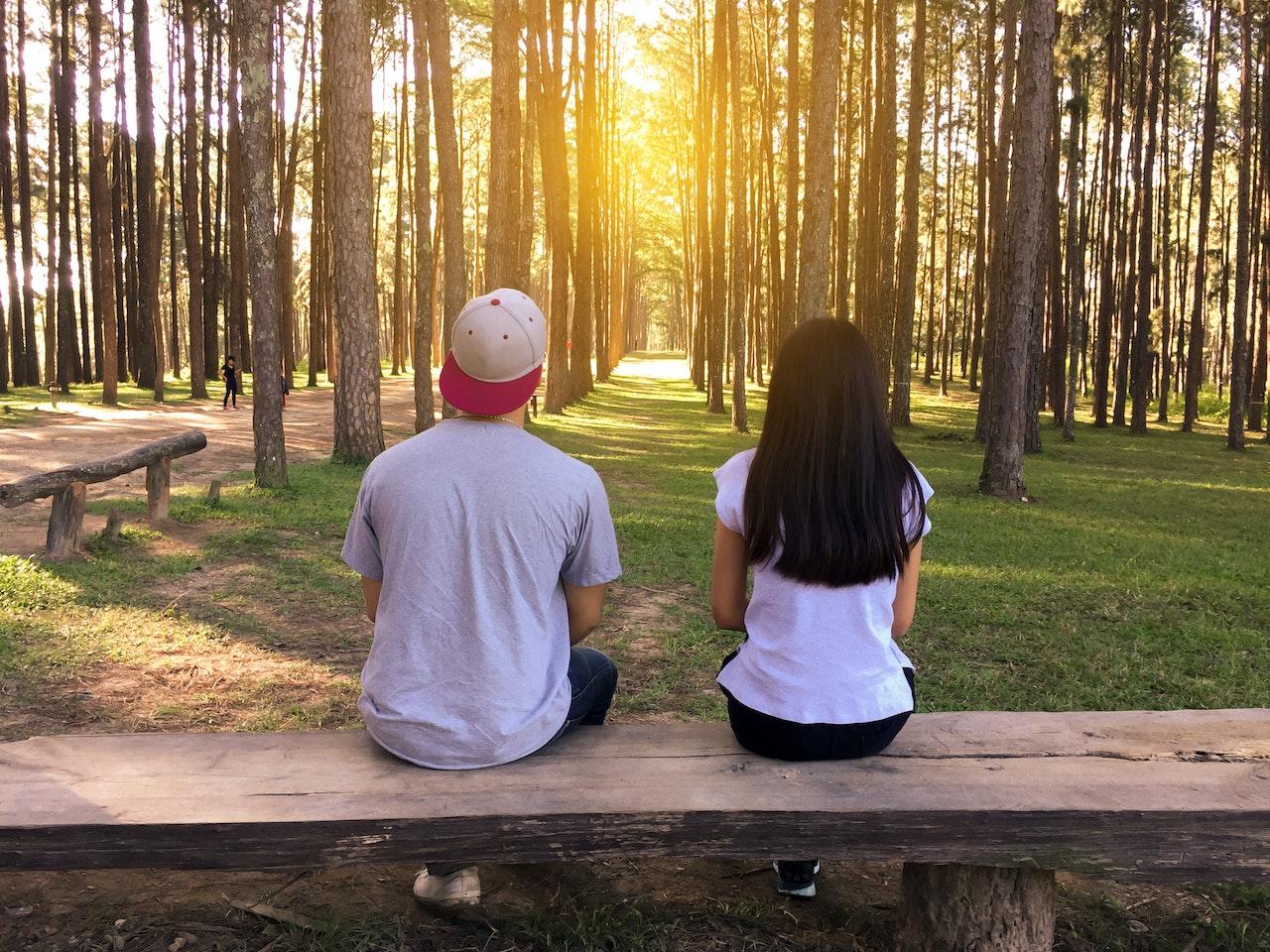Introduction
Have you ever found yourself attracted to someone who was raised in a survivalist environment? Dating someone with a survivalist upbringing, and learning how to date someone raised on survival, can bring about unique challenges and experiences that may be unfamiliar to most.
In this article, we will explore the dynamics of dating individuals who were raised on survival and discuss the potential implications of their upbringing on their relationships. Let’s delve into this fascinating topic and uncover ways to foster understanding and connection.
Dating Survivors: Is it Advisable?
Dating survivors, those who were raised in survivalist environments, and learning how to date someone raised on survival, can indeed be a worthwhile and fulfilling experience. However, it is crucial to approach these relationships with empathy, compassion, and a willingness to understand their unique perspective.
Survivors often possess resilience, resourcefulness, and a strong sense of self-reliance, which can be admirable traits in a partner. By embracing these qualities and fostering a supportive and understanding environment, you can build a deep and meaningful connection with someone who has overcome extraordinary challenges.
Toxic Traits and Survival Upbringing: Are They Linked?
It is essential to recognize that not all survivors of survivalist upbringings exhibit toxic traits. However, it is not uncommon for individuals who have experienced traumatic or challenging environments to develop certain behavioral patterns that can affect their relationships.
These patterns may include hypervigilance, difficulty trusting others, fear of vulnerability, or a tendency to put up emotional walls.
It is crucial to approach these challenges with sensitivity and patience. Engaging in open and honest communication is key to understanding the root causes of these behaviors and working towards building a healthy relationship.
Dating Survivors: Is it Worth Considering?
While dating someone raised on survival may require more effort and understanding, it can also lead to a deeply rewarding and meaningful connection. Survivors often possess a unique perspective on life, having overcome significant obstacles.
They may have honed valuable skills, such as problem-solving, adaptability, and self-discipline, which can contribute positively to the relationship.
Moreover, survivors often exhibit remarkable strength and resilience, making them incredible partners. By offering support, understanding, and a safe space, you can help create an environment in which their strengths can shine.

Unique Challenges of Survivalist Upbringing
Understanding the unique challenges faced by survivors can help foster empathy and compassion within the relationship. It is crucial to recognize that survivors may carry the weight of past traumas, which can manifest in different ways. Here are some challenges commonly associated with a survivalist upbringing:
1. Trust Issues
Survivors may find it difficult to trust others fully. This can stem from having to rely solely on themselves for survival in their formative years. Building trust may take time and patience, and it is important to be understanding and consistent in your actions.
2. Emotional Vulnerability
Due to the need to be self-reliant, survivors might struggle with expressing their emotions openly. Opening up emotionally may be perceived as a vulnerability that they have learned to avoid. Creating a safe and non-judgmental space can encourage emotional growth and strengthen the bond between you.
3. Independence and Self-Reliance
Survivors have often learned to rely on themselves and are accustomed to being self-sufficient. They may have difficulty accepting help or relying on others. Recognize and respect their need for independence while also fostering interdependence and teamwork within the relationship.
4. Coping Mechanisms
Survivors may have developed coping mechanisms during their challenging upbringing. These mechanisms could include emotional detachment, hyper-vigilance, or a fear of intimacy. It is essential to approach these coping mechanisms with understanding and to encourage healthier ways of dealing with stress and emotions.
Important Disclaimer: Abuse Extends Beyond Physical Violence
When discussing survivors and their unique challenges, it is vital to acknowledge that abuse extends beyond physical violence. Emotional, psychological, and verbal abuse can have long-lasting effects on individuals. If you suspect that your partner has experienced abuse, it is crucial to encourage them to seek professional help and support them throughout their healing journey.
| Aspect | Men in Survival Mode | Women in Survival Mode |
|---|---|---|
| Societal Expectations | May face pressure to appear strong and self-reliant, as societal norms often discourage emotional vulnerability in men. | May experience societal pressure to prioritize nurturing and caretaking roles, potentially suppressing personal needs and emotions. |
| Expression of Emotions | May struggle with expressing vulnerability or seeking help due to societal expectations of masculinity. | May be more inclined to express emotions openly and seek support from others due to cultural encouragement of emotional expression. |
| Coping Mechanisms | May gravitate towards behaviors like aggression, withdrawal, or substance use as a means of self-protection. | May engage in coping mechanisms such as seeking social support, verbal expression, or engaging in nurturing activities. |
| Communication Styles | Tend to rely on problem-solving and offering solutions rather than discussing emotional aspects. | Often place emphasis on emotional connection and seek validation through sharing personal experiences. |
| Help-Seeking Behaviors | May hesitate to seek help or therapy due to stigma or fear of judgment surrounding mental health. | More likely to seek support from friends, family, or professional help when facing emotional challenges. |
| Impact of Gender Roles | May struggle with reconciling societal expectations of strength with personal struggles, potentially leading to internal conflicts. | May experience pressure to balance multiple roles, such as caregiver, partner, and career professional, which can create additional stress and challenges. |
Should You Date Survivors?
Deciding to date someone raised on survival, and understanding how to date someone raised on survival, requires careful consideration and self-reflection. It is important to assess your own emotional readiness, patience, and ability to provide a safe and supportive environment.
Dating a survivor can be both fulfilling and challenging, and it is essential to enter into the relationship with a genuine desire to understand, support, and grow together. By being mindful of the unique challenges and experiences that come with dating someone raised on survival, you can approach the relationship with the necessary empathy, compassion, and dedication to building a strong and nurturing connection.

5 Ways Survival Mode Affects Our Relationships
Survival mode, ingrained from a survivalist upbringing, can have profound effects on individuals’ relationships. Here are five ways in which this mode can influence and shape their approach to dating and connection:
1. Trust and Vulnerability
Survival mode often instills a deep sense of self-reliance, which can make it challenging for individuals to trust others fully. They may have learned to rely solely on themselves for survival, leading to a reluctance to let their guard down and be vulnerable in relationships. Building trust may require patience, consistency, and open communication.
2. Emotional Expression
Survivors raised in survivalist environments may struggle with expressing their emotions openly. The focus on practicality and survival often leaves little room for emotional exploration and understanding. As a result, they may find it difficult to articulate their feelings or connect deeply on an emotional level. Encouraging a safe and supportive environment for emotional expression can help them break through these barriers.
3. Independence and Self-Sufficiency
Survivalist upbringing cultivates independence and self-sufficiency as core values. Survivors may be accustomed to relying solely on themselves, making it challenging for them to accept help or depend on others. Balancing their need for independence with the development of interdependence and teamwork in a relationship is essential.
Read also – Dating someone with low-self esteem
4. Hyper-Vigilance and Anxiety
Living in survival mode often involves a constant state of hyper-vigilance and heightened anxiety. Survivors, especially those raised on survival, may have developed these traits as a means of staying alert to potential threats. However, this hyper-vigilance can manifest as constant worry, fear, and difficulty relaxing in relationships, making it important to know how to date someone raised on survival. Patience, understanding, and creating a safe environment can help alleviate these anxieties over time and support the survivor in building trust and emotional security within the relationship.
5. Coping Mechanisms and Defense Mechanisms
Survivors raised on survival often develop coping mechanisms and defense mechanisms as a means of protection. These mechanisms could include emotional detachment, avoidance of intimacy, or a tendency to withdraw when faced with vulnerability. Recognizing these defense mechanisms and supporting healthier ways of coping can promote growth and emotional well-being.
Understanding Survival Mode & Basic Needs
Survival mode is rooted in the instinctual drive to meet basic needs for survival. Individuals raised in survivalist environments have become adept at navigating challenging circumstances and ensuring their physical well-being.
However, this focus on survival can sometimes overshadow the importance of fulfilling emotional needs and fostering healthy relationships.
Understanding the dynamics of survival mode can help you empathize with your partner’s behavior and reactions. By recognizing that their actions may stem from a deeply ingrained need for survival, you can approach challenges with compassion and support.
Read also – Loving someone from a distance
The Light At The End Of The Tunnel
While the challenges of dating someone raised on survival may seem daunting, it is essential to remember that growth and healing are possible. With patience, open communication, and a willingness to learn, both individuals in the relationship can find the light at the end of the tunnel.
Survivors have the capacity to overcome their past and develop healthier relationship patterns. By creating a safe and nurturing space, you can help your partner gradually let go of survival mode and embrace a more balanced approach to life and love. It may take time, but with dedication and understanding, you can build a strong and meaningful connection.
FAQS – how to date someone raised on survival
Determining whether you were raised on love or survival requires reflection on your upbringing. Consider the dynamics within your family, the emphasis on emotional well-being, and the level of stability and support provided. If your childhood focused more on meeting basic survival needs rather than emotional nurturing, it is likely that survival was prioritized.
Being in survival mode in relationships means operating from a place of self-protection and prioritizing immediate physical and emotional safety. It often involves hypervigilance, fear of vulnerability, and difficulty in trusting others. Survival mode can hinder the ability to form deep emotional connections and impact the overall well-being of the relationship
When a person is in survival mode, their focus shifts primarily to meeting basic survival needs. They may experience heightened stress, anxiety, and a sense of constant alertness. Emotional vulnerability and trust can be challenging, leading to difficulties in forming and maintaining healthy relationships.
Signs that someone may be in survival mode include constant worry, hypervigilance, difficulty expressing emotions, fear of intimacy, and a strong need for control or self-reliance. They may also exhibit defensive behaviors or have a guarded nature in relationships.
Survival mode can be triggered by traumatic experiences, unstable environments, neglect, or prolonged exposure to stress and adversity. It is a coping mechanism developed to navigate challenging circumstances and ensure self-preservation. The causes can vary from childhood trauma to ongoing high-stress situations.
To help someone in survival mode, provide a safe and non-judgmental space for them to express their feelings and experiences. Offer support and empathy, and encourage them to seek professional help if needed. Patience, understanding, and consistent reassurance can aid in their healing journey.
When a man is in survival mode, and learning how to date someone raised on survival, he may exhibit similar behaviors and challenges as anyone else in survival mode. However, societal expectations around masculinity and emotional expression may further complicate their ability to seek help or open up about their struggles.
Creating a supportive and understanding environment, and understanding how to date someone raised on survival, can help them navigate survival mode and foster emotional growth. Encouraging open communication, dismantling stereotypes, and promoting a safe space for vulnerability are vital steps in supporting men in their healing journey.
Conclusion
Dating someone raised on survival can be a rewarding journey of personal growth and deep connection. By acknowledging and understanding the unique challenges survivors face, you can navigate these relationships with compassion, empathy, and patience.
Remember, building a healthy relationship requires open communication, trust, and a willingness to learn from one another. With understanding and love, you can create a strong and lasting bond with someone who has triumphed over adversity and possesses remarkable strength.
